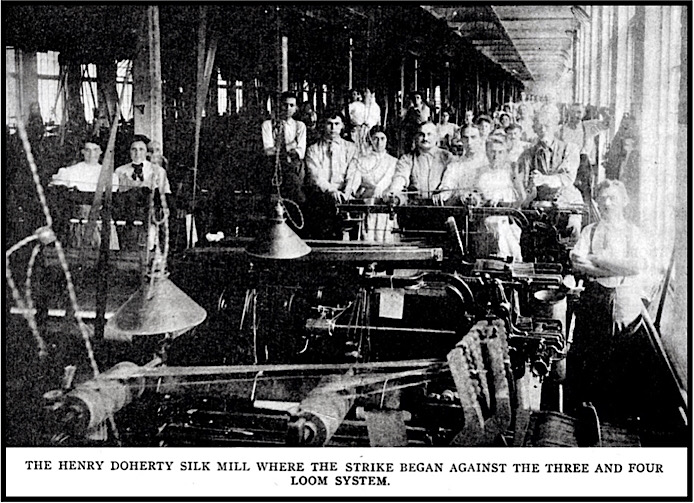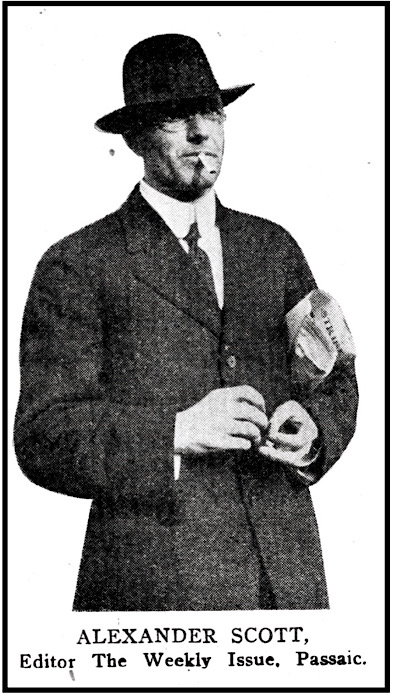 —————
—————
Hellraisers Journal – Sunday May 11, 1913
From Pratt, West Virginia, Military Bastile: “Stirring Letter from Mother Jones”
From the Appeal to Reason of May 10, 1913:
———-
A Stirring Letter from Mother Jones
(The following letter to Appeal readers from Mother Jones was sent to Mrs. Ryan Walker who is now in New York City, and by her forwarded to us. Had the letter been addressed to the Appeal to Reason it would never have reached its destination. This letter proves that prison bars, even death itself, has no terrors for this brave heroine of more than a hundred fiercely fought battles on the industrial field. Mother Jones is your mother, and I appeal to you to help us raise such a mighty protest that the outrages against the working class in barbarous West Virginia will cease. You have helped the Appeal win many a contest with plutocracy. We are now engaged in the biggest fight of all its career-a fight the outcome of which is of vital concern, not only to our imprisoned comrades in West Virginia, but to every man, woman and child in America. Read Mother Jones, letter-read it from the housetops, in the mines, in the shops, read it aloud wherever men congregate to work.)
Pratt, W. Va., Military Bastile, April 25, 1913.-This is a very serious situation we have here and is not grasped by the outside world and God knows when it will be. I have been in here about eleven weeks. There are twelve of we poor devils, eleven men and myself, one of them the editor of the Socialist paper in Charleston, and another one of our speakers, John Brown. His wife and three children are left to perish outside. We hear the cry of these little ones for their father; we hear the groans and sobs of his beautiful wife, but the dear, well-fed people don’t care for that. I don’t care much for myself, because my career is nearly ended, but I think of my brave boys who are incarcerated in Harrison county jail in Clarksburg and not a voice of protest raised in their behalf. They have been brave and true. They are now paying the penalty for having dared to fight for right and justice; but it matters not, this fight will go on, and the workers themselves will have to take hold of the machinery and pick out the skypilots and lawyers and quit feeding them and giving them jobs. I have been fighting this machine for years with scarcely any help. I am still in the fight and the pirates can’t shut me up even if I am in jail watched by the bloodhounds.
Mother Jones.
[Emphasis added.]

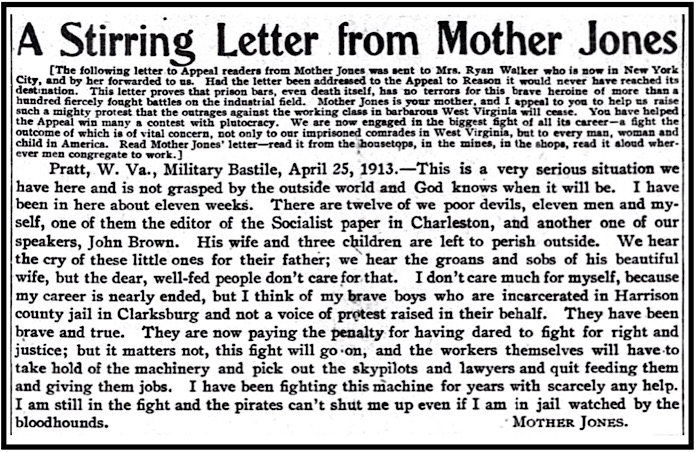
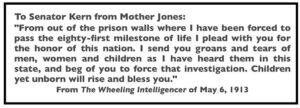 —————
—————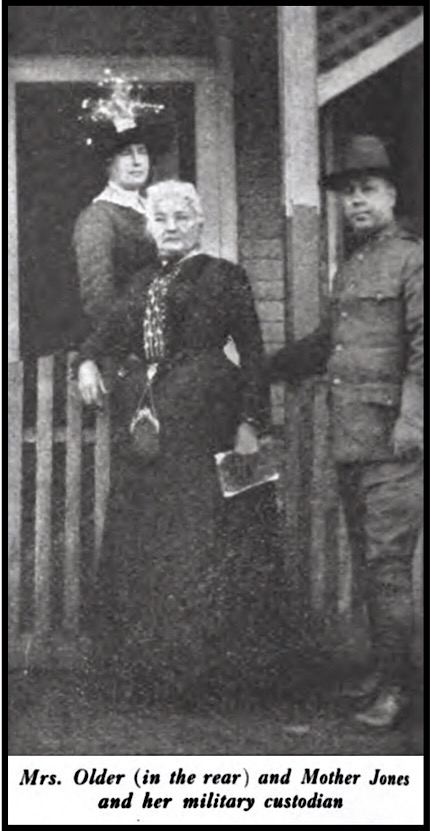
 —————
—————
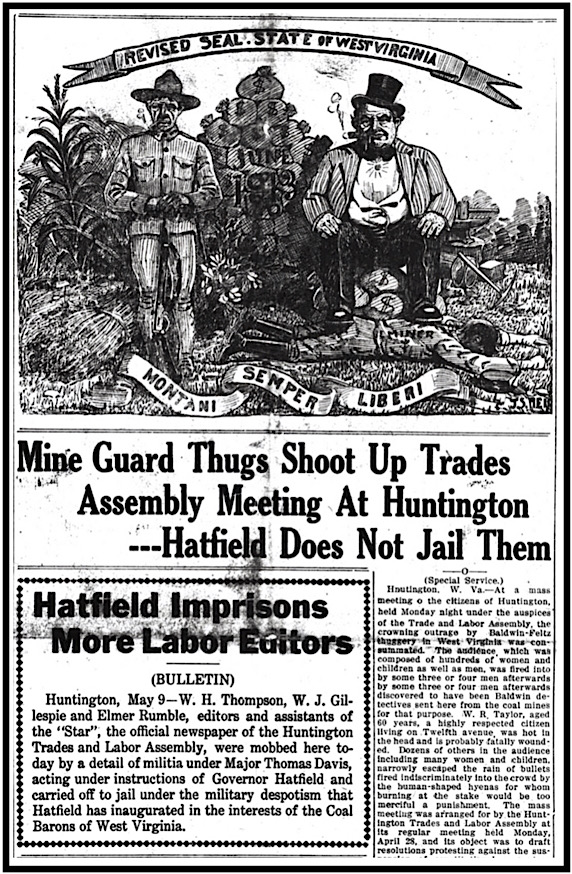
 —————
—————
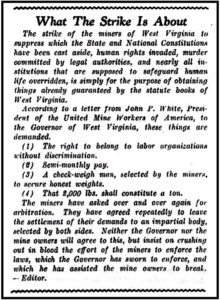
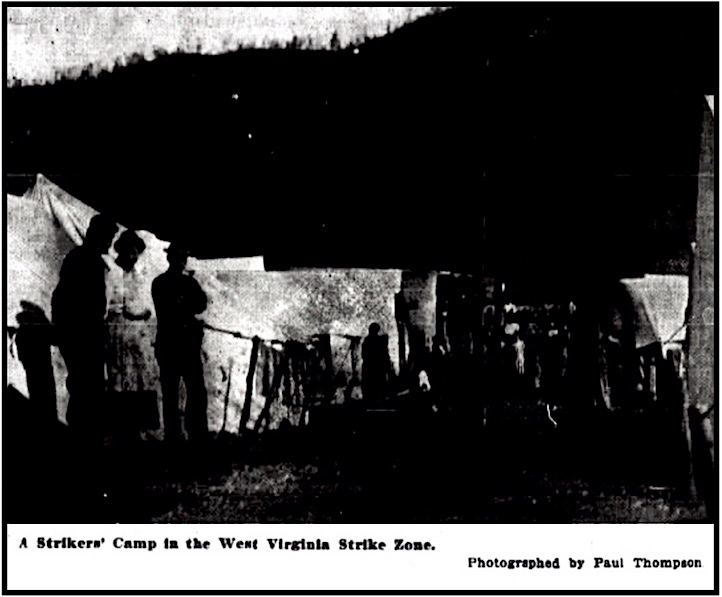
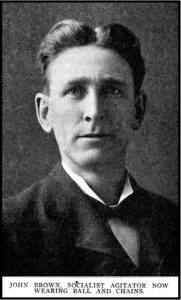
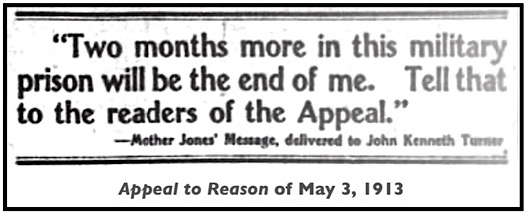 —————
—————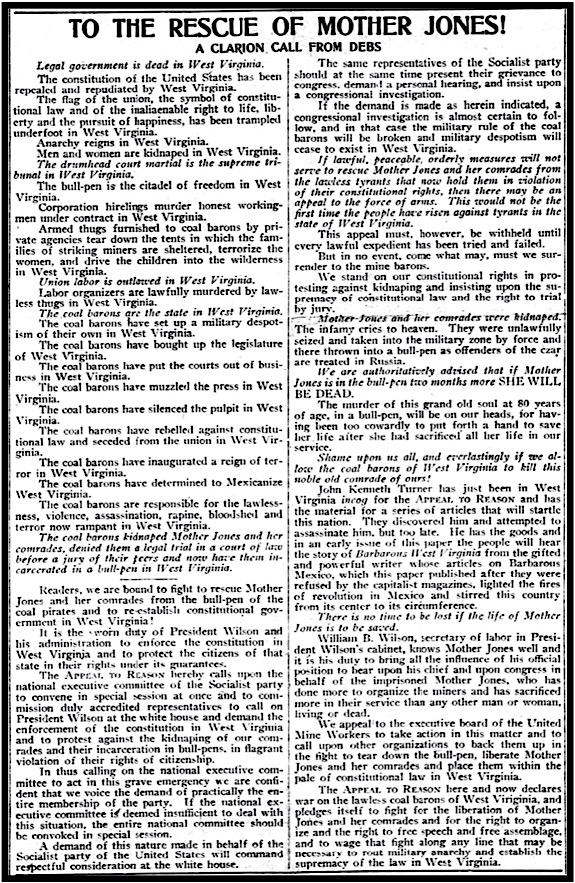
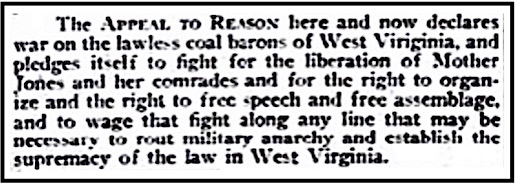
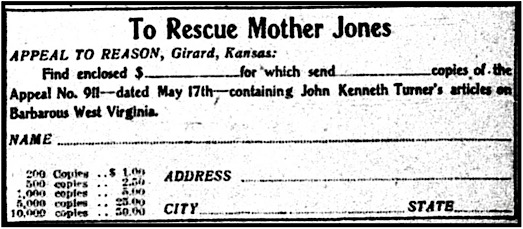
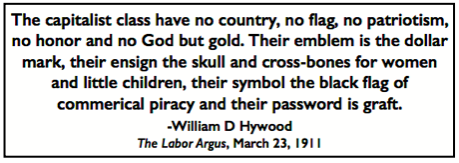 —————
—————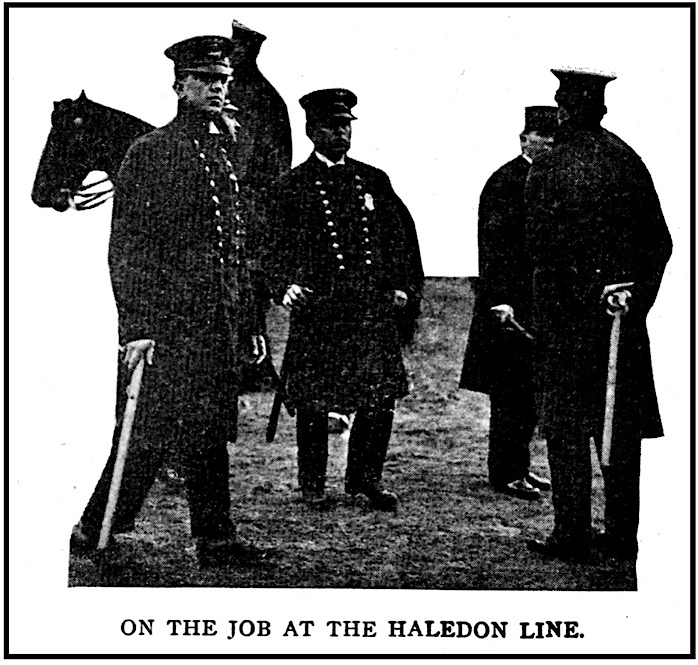
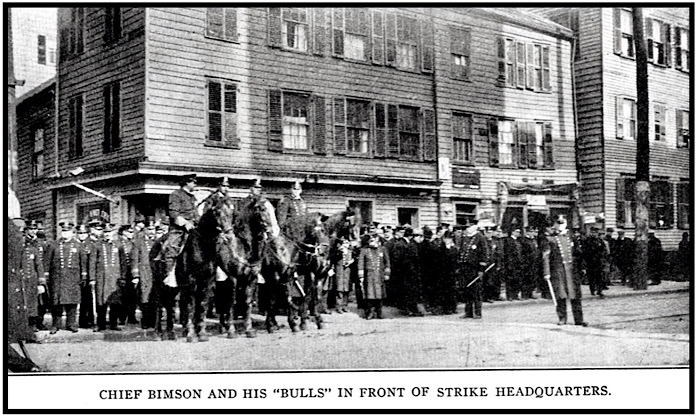
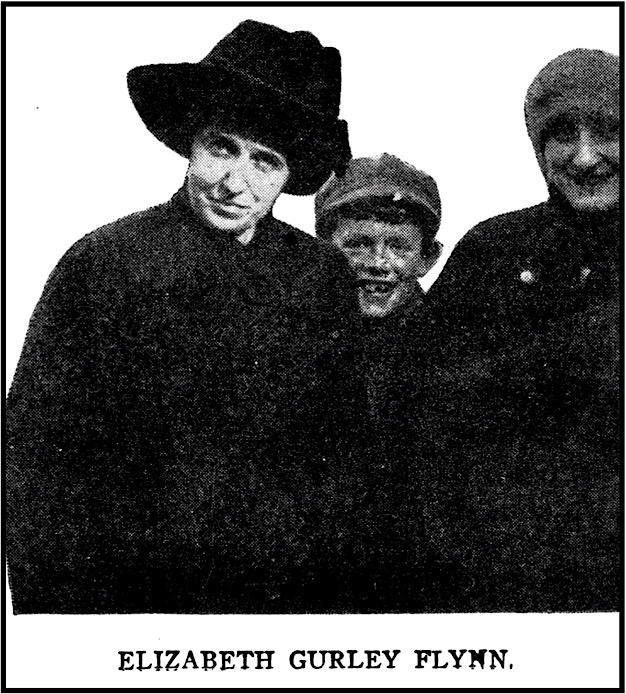
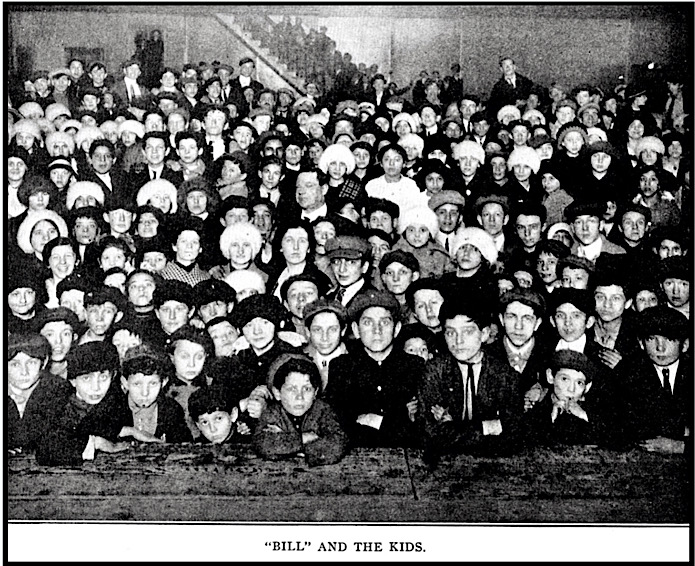
 —————
—————